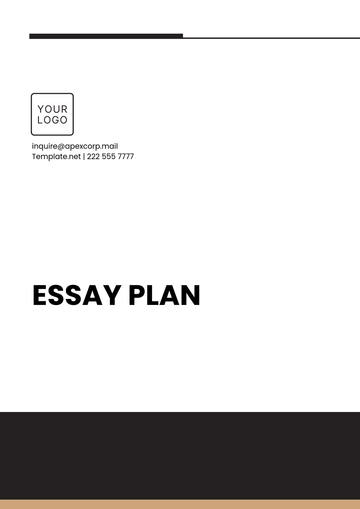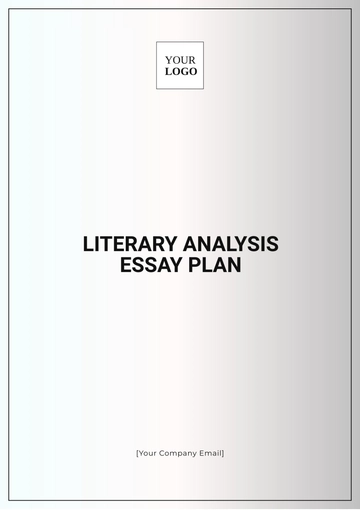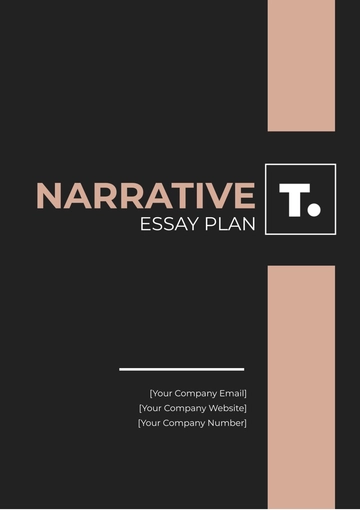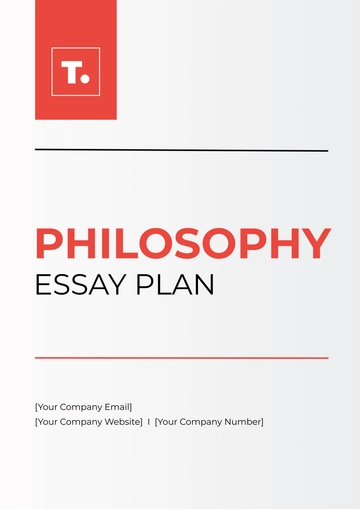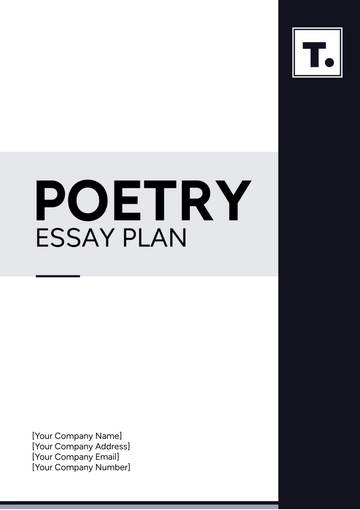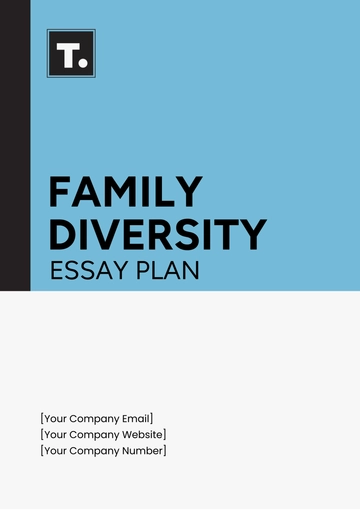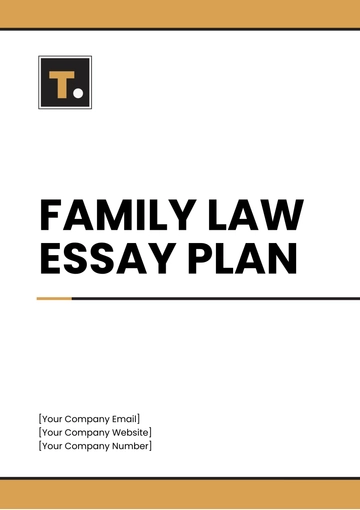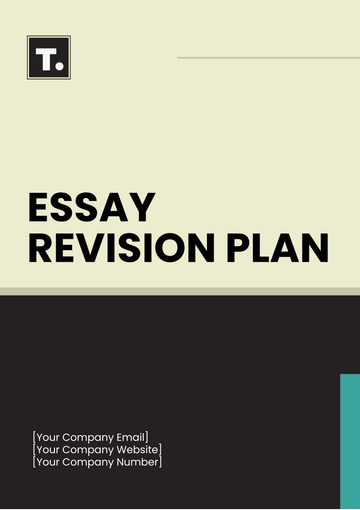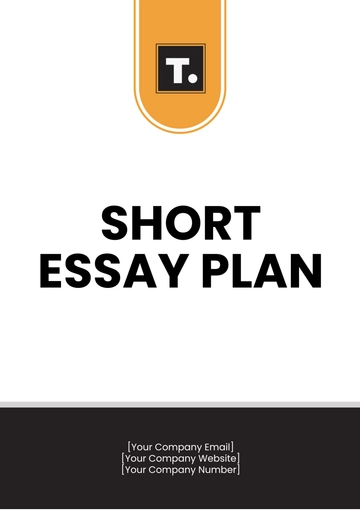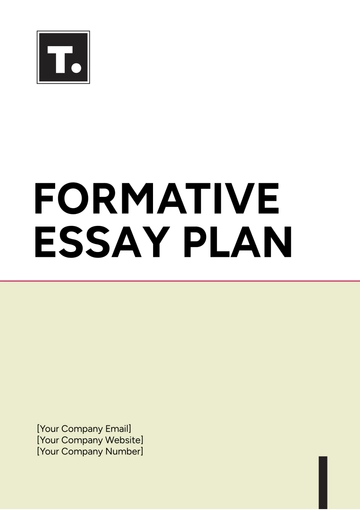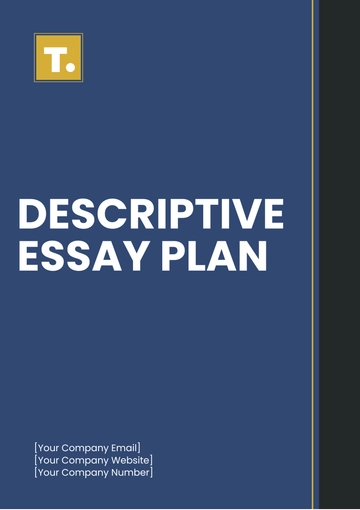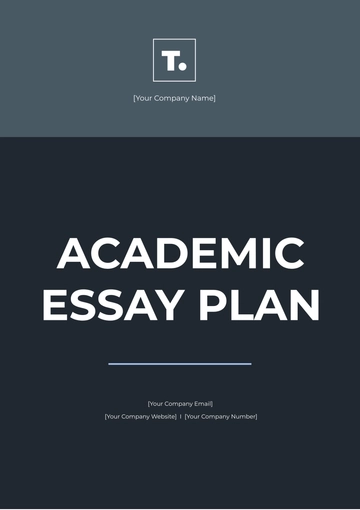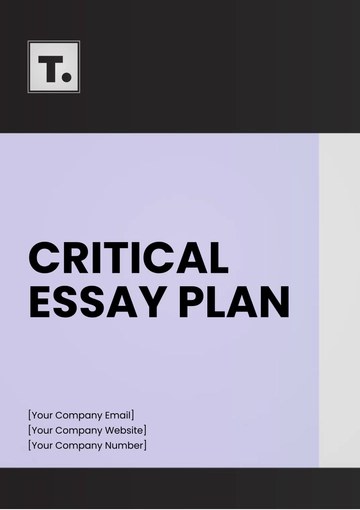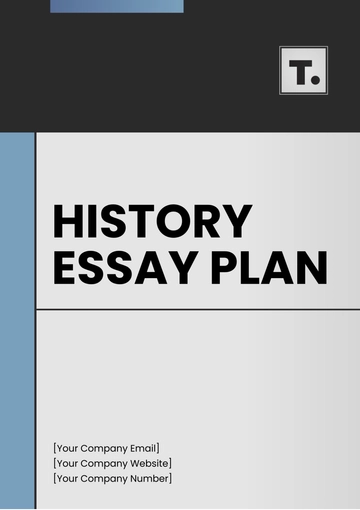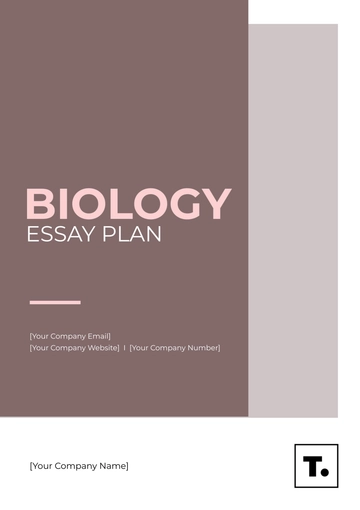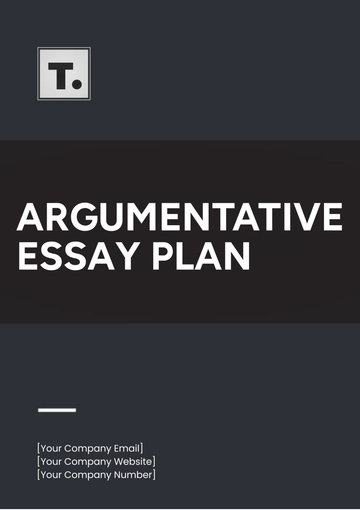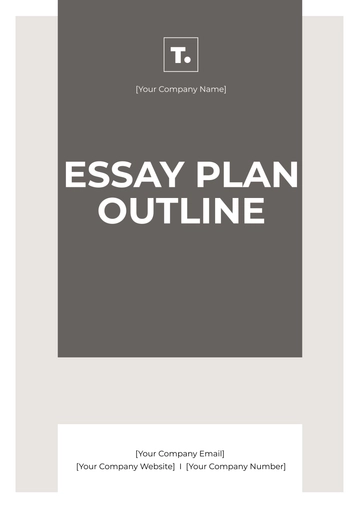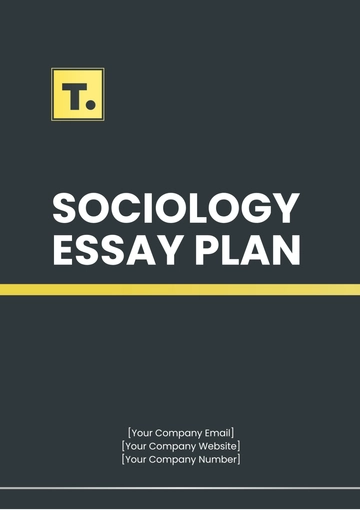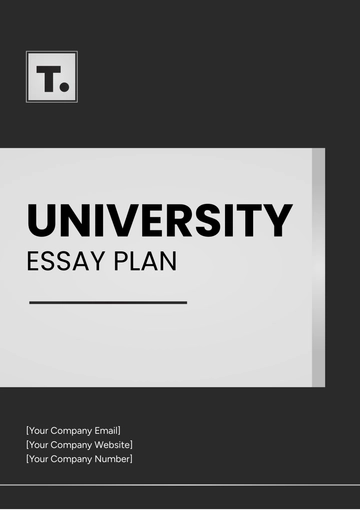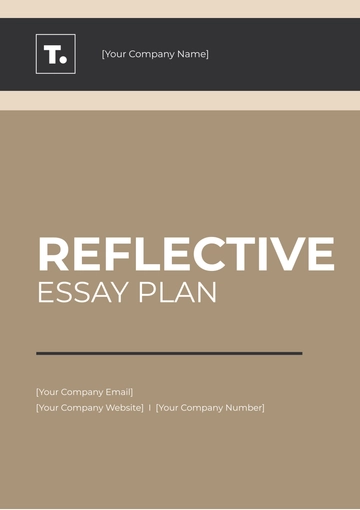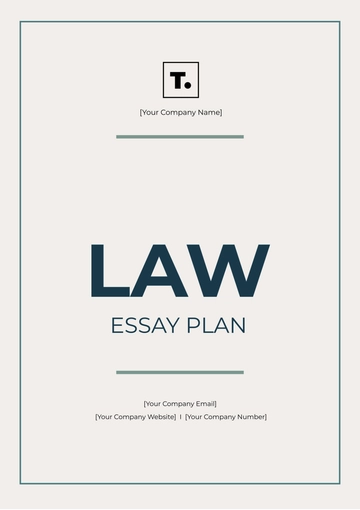Free Critical Essay Plan
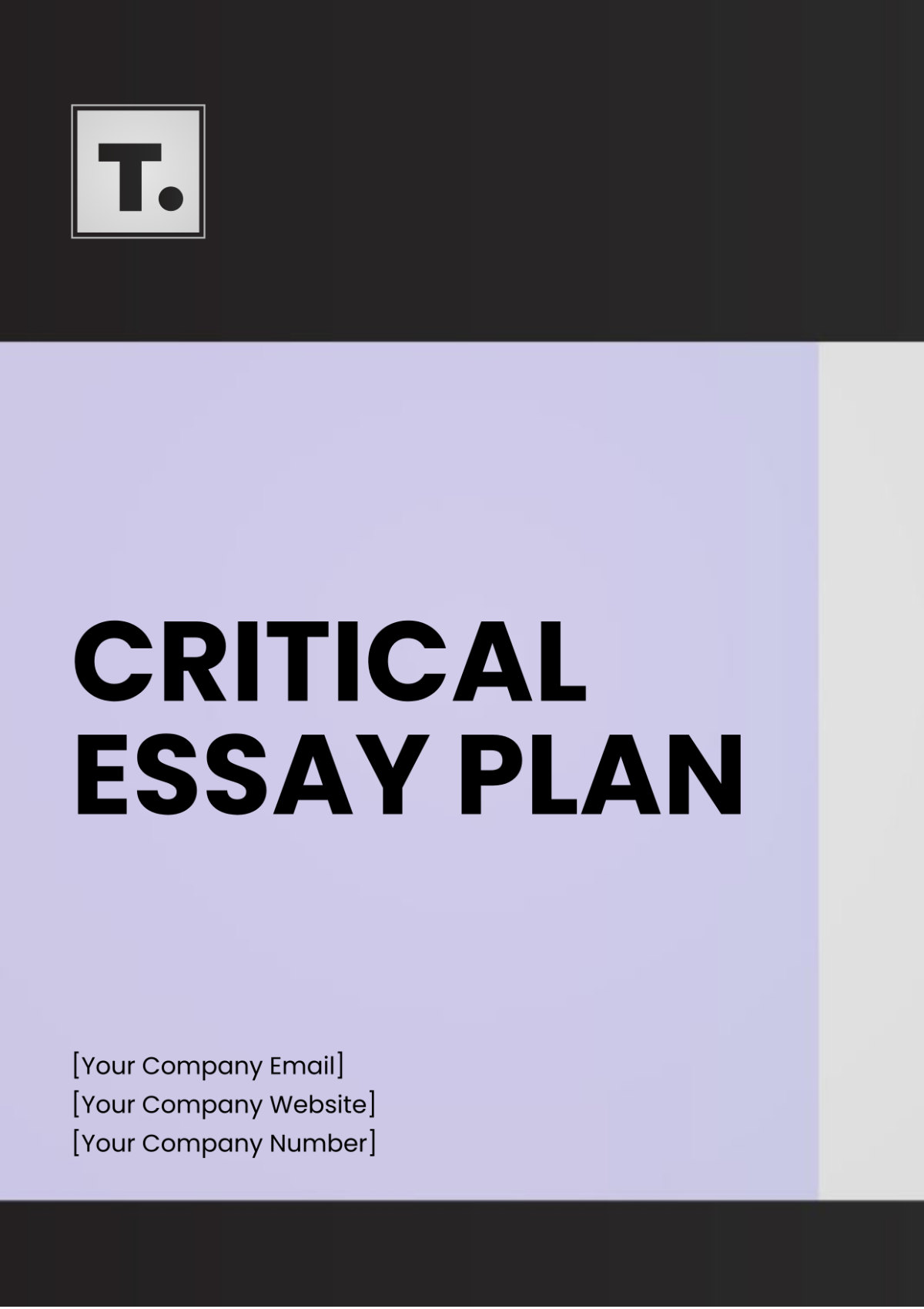
Prepared by: [YOUR NAME]
1. Introduction
Essay Topic: [ESSAY TOPIC]
Thesis Statement: [THESIS STATEMENT]
Purpose: To critically analyze [PRIMARY FIELD] in the context of [ESSAY TOPIC].
Audience: [TARGET AUDIENCE]
Scope: This essay will explore [MAIN POINTS] to provide a comprehensive understanding of [ESSAY TOPIC].
2. Background Information
Overview of [PRIMARY FIELD]: Briefly introduce [PRIMARY FIELD] and its significance in [RELEVANT CONTEXT].
Historical Context: Explore the historical evolution of [PRIMARY FIELD] and its impact on [RELEVANT ASPECTS].
Key Concepts: Define essential terms and concepts related to [PRIMARY FIELD] that will be discussed in the essay.
3. Critical Analysis
Literature Review: Review existing scholarly works, studies, and theories about [PRIMARY FIELD] and its connection to [ESSAY TOPIC].
Critical Perspectives: Present various viewpoints and arguments from scholars regarding [PRIMARY FIELD] to provide a nuanced analysis.
Case Studies: Incorporate real-life examples or case studies to illustrate key points and support arguments.
Comparison and Contrast: Analyze similarities and differences between [PRIMARY FIELD] and related concepts to deepen understanding.
4. Methodology
Research Methods: Outline the research methods employed to gather data and sources for the essay.
Data Collection: Describe how information, data, and evidence were collected and evaluated for relevance and reliability.
Analytical Approach: Explain the analytical framework used to interpret findings and draw conclusions.
5. Argument Development
Main Arguments: Present the main arguments or claims supported by evidence and reasoning.
Counterarguments: Anticipate potential objections or counterarguments and address them with supporting evidence.
Logical Flow: Ensure a logical progression of ideas and arguments to maintain coherence and clarity.
6. Conclusion
Summary of Findings: Recapitulate the key findings and insights derived from the critical analysis.
Implications: Discuss the broader implications of the essay's findings for [PRIMARY FIELD] and its stakeholders.
Recommendations: Offer recommendations for future research or actions based on the conclusions drawn.
7. References
Citations: Provide a comprehensive list of sources cited throughout the essay in the appropriate citation style ([E.G., APA, MLA]).
Bibliography: Include additional readings and resources for further exploration of the topic.
8. Appendices (if applicable)
Additional Data: Include supplementary data, charts, graphs, or tables referenced in the essay.
Interview Transcripts: Attach transcripts of interviews conducted as part of the research process.
- 100% Customizable, free editor
- Access 1 Million+ Templates, photo’s & graphics
- Download or share as a template
- Click and replace photos, graphics, text, backgrounds
- Resize, crop, AI write & more
- Access advanced editor
Discover the ultimate tool for crafting impeccable critical essays with Template.net's Critical Essay Plan Template. This meticulously crafted resource is fully editable and customizable, ensuring flexibility to suit your unique needs. Seamlessly tailor your essay structure using our intuitive AI Editor Tool, simplifying your writing process and maximizing efficiency.
You may also like
- Finance Plan
- Construction Plan
- Sales Plan
- Development Plan
- Career Plan
- Budget Plan
- HR Plan
- Education Plan
- Transition Plan
- Work Plan
- Training Plan
- Communication Plan
- Operation Plan
- Health And Safety Plan
- Strategy Plan
- Professional Development Plan
- Advertising Plan
- Risk Management Plan
- Restaurant Plan
- School Plan
- Nursing Home Patient Care Plan
- Nursing Care Plan
- Plan Event
- Startup Plan
- Social Media Plan
- Staffing Plan
- Annual Plan
- Content Plan
- Payment Plan
- Implementation Plan
- Hotel Plan
- Workout Plan
- Accounting Plan
- Campaign Plan
- Essay Plan
- 30 60 90 Day Plan
- Research Plan
- Recruitment Plan
- 90 Day Plan
- Quarterly Plan
- Emergency Plan
- 5 Year Plan
- Gym Plan
- Personal Plan
- IT and Software Plan
- Treatment Plan
- Real Estate Plan
- Law Firm Plan
- Healthcare Plan
- Improvement Plan
- Media Plan
- 5 Year Business Plan
- Learning Plan
- Marketing Campaign Plan
- Travel Agency Plan
- Cleaning Services Plan
- Interior Design Plan
- Performance Plan
- PR Plan
- Birth Plan
- Life Plan
- SEO Plan
- Disaster Recovery Plan
- Continuity Plan
- Launch Plan
- Legal Plan
- Behavior Plan
- Performance Improvement Plan
- Salon Plan
- Security Plan
- Security Management Plan
- Employee Development Plan
- Quality Plan
- Service Improvement Plan
- Growth Plan
- Incident Response Plan
- Basketball Plan
- Emergency Action Plan
- Product Launch Plan
- Spa Plan
- Employee Training Plan
- Data Analysis Plan
- Employee Action Plan
- Territory Plan
- Audit Plan
- Classroom Plan
- Activity Plan
- Parenting Plan
- Care Plan
- Project Execution Plan
- Exercise Plan
- Internship Plan
- Software Development Plan
- Continuous Improvement Plan
- Leave Plan
- 90 Day Sales Plan
- Advertising Agency Plan
- Employee Transition Plan
- Smart Action Plan
- Workplace Safety Plan
- Behavior Change Plan
- Contingency Plan
- Continuity of Operations Plan
- Health Plan
- Quality Control Plan
- Self Plan
- Sports Development Plan
- Change Management Plan
- Ecommerce Plan
- Personal Financial Plan
- Process Improvement Plan
- 30-60-90 Day Sales Plan
- Crisis Management Plan
- Engagement Plan
- Execution Plan
- Pandemic Plan
- Quality Assurance Plan
- Service Continuity Plan
- Agile Project Plan
- Fundraising Plan
- Job Transition Plan
- Asset Maintenance Plan
- Maintenance Plan
- Software Test Plan
- Staff Training and Development Plan
- 3 Year Plan
- Brand Activation Plan
- Release Plan
- Resource Plan
- Risk Mitigation Plan
- Teacher Plan
- 30 60 90 Day Plan for New Manager
- Food Safety Plan
- Food Truck Plan
- Hiring Plan
- Quality Management Plan
- Wellness Plan
- Behavior Intervention Plan
- Bonus Plan
- Investment Plan
- Maternity Leave Plan
- Pandemic Response Plan
- Succession Planning
- Coaching Plan
- Configuration Management Plan
- Remote Work Plan
- Self Care Plan
- Teaching Plan
- 100-Day Plan
- HACCP Plan
- Student Plan
- Sustainability Plan
- 30 60 90 Day Plan for Interview
- Access Plan
- Site Specific Safety Plan
